Dr. Sean Mackey: Tools to Reduce & Manage Pain

Explore "medication" with insightful episodes like "Dr. Sean Mackey: Tools to Reduce & Manage Pain", "S7.Bonus 10 | Living With & Walking Through Anxiety with Jessa Hillmann", "The ADHD Doctor: “I’ve Scanned 250,000 Brains” You (Steven Bartlett) Have ADHD! & Coffee Is Damaging Your Brain!!! Dr Daniel Amen", "138. We need a new approach to anxiety ft. Dr David Rosmarin" and "#276 ‒ Special episode: Peter answers questions on longevity, supplements, protein, fasting, apoB, statins, and more" from podcasts like ""Huberman Lab", "Affirming Truths Podcast | Christian Mental Health, Encouragement", "The Diary Of A CEO with Steven Bartlett", "The Psychology of your 20s" and "The Peter Attia Drive"" and more!


Join this honest conversation as Carla talks with Jessa about her struggles with anxiety, her attempts to live medication free and how she is navigating living with mental illness.
Follow Jessa on instagram @lifestyleofananxiousmom and on her blog www.lifestyleofananxiousmom.com
Join the Patreon for more encouragement and to support Carla and the podcast.
Did you know that Carla is a Christian Mental Health and Life coach? See if working with her is what you need in your current season. Book a discovery call today!
Book a Discovery call with me https://calendly.com/cmsarges/discoverycall
Come hangout on IG with me @carlaarges
Check out my blog and more at www.carlaarges.com
5 Steps to Building Resiliency
5 Tips for Overcoming a Negative Body Image
Who You Say I Am Biblical Affirmation Cards


Dr David Rosmarin is an Associate Professor at Harvard Medical School and the founder of the Centre for Anxiety. Today he joins us on the podcast to discuss how we are getting anxiety WRONG as we break down a new approach to managing our anxiety, rather than approaching it with fear. For anyone who is anxious or has battled anxiety in their 20s and beyond, join us for a vulnerable conversation of how anxiety may actually be your superpower and how it has even created stronger relationships for me, personally. Listen now.
Buy Thriving With Anxiety, Dr Rosmarin's new book: https://www.amazon.com/Thriving-Anxiety-Tools-Make-Your/dp/1400327857/ref=sr_1_1?qid=1698370899&refinements=p_27%3ADavid+H.+Rosmarin&s=books&sr=1-1
Follow Dr Rosmarin: https://www.instagram.com/dhrosmarin/
Follow The Psychology of your 20s: https://www.instagram.com/thatpsychologypodcast/
See omnystudio.com/listener for privacy information.

View the Show Notes Page for This Episode
Become a Member to Receive Exclusive Content
Sign Up to Receive Peter’s Weekly Newsletter
In this special episode of The Drive, Peter discusses a variety of topics, breaking away from the typical deep-dive format to explore a wide range of common questions submitted by listeners. Peter tackles subjects like the viability of living to 120 and beyond, addressing some of the optimistic theories regarding achievement of this remarkable feat. Peter then shares his drug and supplement regimen while emphasizing how individualized these protocols need to be. The conversation also touches on lowering apoB, the long-term use of statins, the myth of good vs. bad cholesterol, the complexities of nutrition research, the quest for the ideal diet, and Peter's strategies for hitting daily protein goals. Peter finishes with a discussion about his favorite health-tracking wearables, the role of CGM in non-diabetics, and more.
We discuss:
Connect With Peter on Twitter, Instagram, Facebook and YouTube

View the Show Notes Page for This Episode
Become a Member to Receive Exclusive Content
Sign Up to Receive Peter’s Weekly Newsletter
Ted Schaeffer is an internationally recognized urologist who specializes in prostate cancer. In this episode, Ted delves deep into the realm of prostate health, starting with strategies for vigilance and effective management of the issues that can arise with aging, including urinary symptoms, prostatitis, pelvic pain, and prostate inflammation. Ted sheds light on the popular drug finasteride, renowned for its dual purpose in prostate shrinkage and hair loss prevention, as well as the contentious topic of post-finasteride syndrome. Ted then shifts to the topic of cancer, explaining how androgens, genetics, and non-genetic factors contribute to the pathogenesis of prostate cancer. He provides valuable insights into cancer screening, examining blood-based screening tools like PSA and the use of MRI in facilitating biopsies and their interpretation. Finally, he explores the various treatment options for prostate cancer, including surgical interventions, androgen deprivation therapy, and more.
We discuss:
Connect With Peter on Twitter, Instagram, Facebook and YouTube
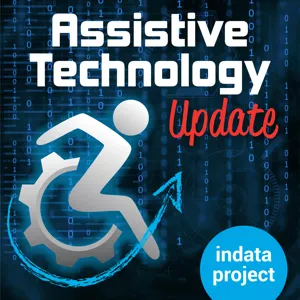
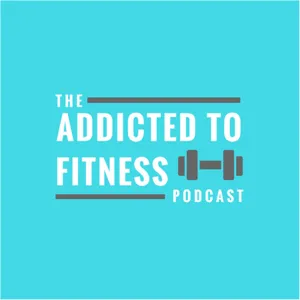
This week's Addicted to Fitness explores the ancient, somewhat controversial practice of using urine as a health supplement. Based on a recent conversation overheard in the sauna, Nick and Shannon research the beginnings of urine therapy, the alleged health benefits, the potential detrimental side effects, and how modern supplements/medications have minimized the need for this ancient tradition. Follow the podcast profile on Instagram @TheATFPodcast. Give it a listen and let us know what you think by leaving a rating & review in Apple Podcasts.
Like & Follow the Addicted to Fitness Podcast Facebook page (Facebook.com/addictedtofitnesspodcast). Follow Nick & Elemental Training Tampa on Facebook (www.facebook.com/ElementalTampa) and Instagram (www.instagram.com/ettampa/) to participate in free live workouts.

Avec l'arrivée du printemps, les allergies saisonnières sont aussi de retour. Que vous en souffrez ou que l’un de vos enfants en souffre, on est parfois mal informé sur les moyens pour nous aider à traverser cette période qui peut être très intense. L’épisode aujourd’hui présente également les mythes qui entourent les allergies saisonnières.
Meggie discute avec deux expertes, Marie-Michèle Ghazal, pharmacienne, mieux connue sous le nom de Journal d'une pharmacienne, ainsi que Audrey Billeau, infirmière clinicienne et mieux connue sous le nom de Maman infirmière.
Segment coup de cœur
Meggie propose une excursion dans le milieu de la finance avec Yannick Lupien, professeur en finance. Ensemble, ils discuteront de l’achat de la première propriété. Comment rassembler les fonds pour accéder à la propriété? Dans un format condensé, Yannick présente aussi le CELIAPP, une nouvelle clé pour épargner en vue d'une première propriété.
Cliquez ici pour consulter un outil budget, très utile pour l’achat d’une propriété.
Visitez le site Web La Maman infirmière d’Audrey Billeau, infirmière clinicienne, et sa page Facebook.
Voici la page Facebook du Journal d'une pharmacienne.
Musique et montage : Studio 706
Animation : Meggie Bélanger
Ce balado est propulsé par Kaleido, l’épargne-études qui en fait plus!
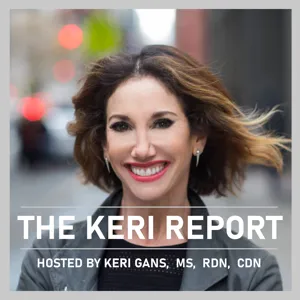
Last month, it was announced that WW (formerly Weight Watchers) was set to acquire Sequence, a subscription telehealth platform “offering access to healthcare providers specializing in chronic weight management”. Since that announcement, there’s been some pushback - but we know on this podcast that mainstream media doesn’t always get it 100% right. So, I decided to go straight to the source so I can make up my mind for myself!
In this episode, I’m joined by Dr. Michelle Cardel, a registered dietitian and obesity and nutrition scientist who oversees WW’s academic research partnerships and clinical trials, nutrition portfolio, and science communication. We discuss what Sequence is, why WW is pursuing this acquisition, and what it means for the future of WW. All this and more - stay tuned!
Resources:
Read press release here.
---
The Keri Report dissects health and nutrition with a no-nonsense approach.
Nutritionist, yoga teacher, and author of The Small Change Diet Keri Gans delivers her straightforward and sometimes controversial approach to what's current in the health and nutrition world. Her fun and engaging personality will leave you with a wealth of information on need-to-know hot topics for your overall well-being.
To find more information and to join Keri's mailing list, visit her website: https://kerigansny.com/
Instagram/Twitter: @kerigans
Facebook Page: @KeriGansNY
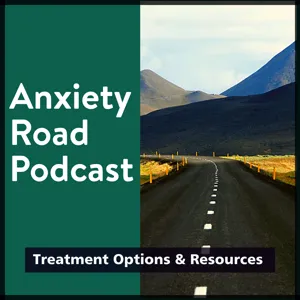
A few years ago in an episode I said:
Anxiety is so much more than the typical stress reaction.
For some of us, we gag, we choke, we have heart pains, we have chest pains, we have diarrhea, we have gastric distress, we have excessive sweating.
We can't leave our homes. These are not the kind of things you're going to be thinking your way through if your symptoms are that extreme.

It’s time for a Life Update!!
Today Carla sits down with her husband Terry and talks about the journey she has been on the last 4 months as her and her medical team try to find a better combination of medication to support her bipolar and bpd. It has been a roller coaster!
Know this - it’s okay if you need medication for your mental illness. But it can sometimes take multiple trial and errors to land on the right one for you.
It doesn’t begin and end with medication though. You need to implement Carla’s 4 Pillars of Thriving in your life. This is the basis on which she coaches her clients in In His Image Wellness Collective.
Join In His Image Wellness Collective ---> carlaargeswellness@gmail.com
Inquire about one-on-one mentorship ---> affirmingtruthsco@gmail.com
Come hangout on IG with me @carlaarges
Check out my blog and more at www.carlaarges.com
5 Steps to Building Resiliency
Affirming Truths Facebook Community
5 Tips for Overcoming a Negative Body Image
Who You Say I Am Biblical Affirmation Cards
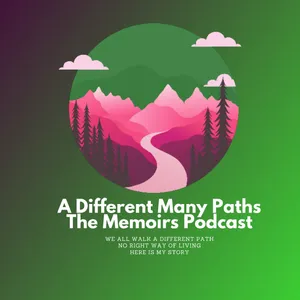

This week's Addicted to Fitness describes how practicing mindfulness/meditation can reduce stress around the holidays. Nick and Shannon discuss the results of a recent study that indicated mindfulness meditation working as well for anxiety as medication and Shannon, who is a certified meditation coach, shares different mindfulness tactics you can use during the holidays to help mitigate your anxiety. Follow the podcast profile on Instagram @TheATFPodcast. Give it a listen and let us know what you think by leaving a rating & review in Apple Podcasts.
This episode is also sponsored by the Heal Supplement from The Amino Company. The Heal supplement is 3x more efficient at triggering muscle growth and repair than any other protein source, helps maintain healthy inflammation levels, helps preserve muscle mass during periods of complete inactivity, and improves physical strength and function. The 100% science back, clinically proven products from The Amino Company are keto-friendly, soy-free, vegetarian, gluten-Free, and Non-GMO. Visit aminoco.com/ATF to read more about the benefits of Heal & other ATF approved products from The Amino Company AND take advantage of our 30% discount by entering ATF at checkout.
Like & Follow the Addicted to Fitness Podcast Facebook page (Facebook.com/addictedtofitnesspodcast). Follow Nick & Elemental Training Tampa on Facebook (www.facebook.com/ElementalTampa) and Instagram (www.instagram.com/ettampa/) to participate in free live workouts. Follow the podcast profile on Instagram @TheATFPodcast and send Nick a DM if you're interested in receiving a customized workout plan delivered to you through the Tampa Strength App

Deciding on taking medication is a choice and a responsibility.
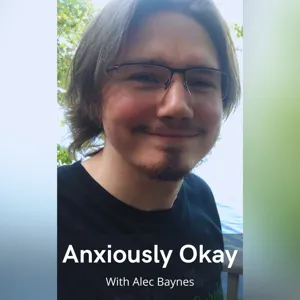
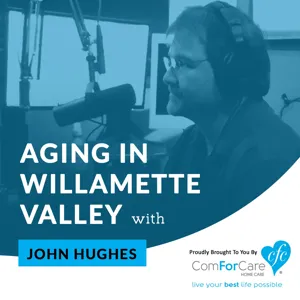
![Mental Health: Do I Need Medication? Psychiatrist versus Psychologist [Getting Help 1]](https://www.podcastworld.io/podcast-images/i-thought-i-was-over-this-90s4u4oe.webp)
Welcome to a new series on Dr. Kimber’s I Thought I Was Over This podcast! This short series, which will be two to three episodes, will cover questions that come up often in her private practice, beginning with: “How do I know if I need help? And if I do, where do I go for help? What if or do I need medication?” Mental health is something we all deal with, and this series aims to provide resources and suggestions if you’re wondering if you need help (and you are not alone if you’re feeling this way — so many of us do at various times!).
In part 1 of this “Getting Help” series, Dr. Kimber starts with offering questions that she uses in her practice to help gain clarity into what is going on, including: “How are you functioning?” Then through reflection, stories, and sharing, she offers ideas of different options and areas to consider, including therapy, medication, supplements, habits, behaviors, and sleep.
Key moments include:
01:36 – The importance of asking yourself: “How can you function?” and “What’s getting in your way?”
05:51 – Let’s discuss: What can you do when you can’t function and accomplish your daily duties such as work, household chores, hygiene, and even physical contact with people?
09:33 – Dr. Kimber’s experience with depression.
10:39 – Dr. Dan Siegel’s story about his struggle with depression.
11:42 – How can you get medication in a professional setting?
17:04 – Dr. Kimber’s opinion regarding supplements.
18:43 – A quick recap of the actionable steps you can take as you get help.
Check out past episodes and more information here: https://www.drkimber.net/podcast-info
Please remember that this podcast is not a replacement for treatment by a healthcare or mental health professional. This content is created for education and entertainment purposes only.
Join 'A Moment of Pause' Newsletter: https://drkimber.activehosted.com/f/5
Music licensed from http://www.purple-planet.com
Connect with Dr. Kimber:
Instagram: https://www.instagram.com/dr_kimber/
About My Work: https://www.drkimber.net
Book: Still: Making A Whole When Parts Go Missing


Stay up to date
For any inquiries, please email us at hello@podcastworld.io